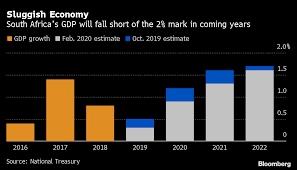 According to USDA-FAS-GAIN Report SF2021-0031 released May 9th, authorities in South Africa are concerned over the trajectory of food price inflation. Indices have shown an increase from 3.4 percent in 2019 to 4.6 percent in 2020 with a projected 5.4 percent rate in 2021.
According to USDA-FAS-GAIN Report SF2021-0031 released May 9th, authorities in South Africa are concerned over the trajectory of food price inflation. Indices have shown an increase from 3.4 percent in 2019 to 4.6 percent in 2020 with a projected 5.4 percent rate in 2021.
The increase in the price of food reflects the general inflation in the economy as denoted by the Consumer Price Inflation Index. Factors leading to inflation in food prices include electricity rates that have increased by 15 percent, minimum wage levels up by 16 percent, higher crude oil prices amounting to 30 percent, and an escalation in commodities including vegetable oils and protein. In March 2021, the Bureau for Food and Agricultural Policy documented a 6.7 percent increase in the price of meat including beef, pork, chicken, and low-value meat products; 7.2 percent for dairy and eggs, and 13.4 percent for vegetable oils.
The economic situation is denoted by the 4.1 percent decrease in GDP and the declining value or the SA Rand, (down 29.9 percent against the US$) both over the past 12 months, 32 percent documented unemployment and a negative 9.2 percent budget balance
 The ruling African National Congress Administration is concerned over the high cost of food, especially for the lower income demographic. The nation operates a Food Price Monitoring Committee with representatives from the Ministry of Agriculture, Land Reform and Rural Development in addition to diverse agencies to track food prices. The Competition Commission monitors any unfair or anti-competitive pricing including excessive margins imposed by retailers,that were apparent during COVID restrictions.
The ruling African National Congress Administration is concerned over the high cost of food, especially for the lower income demographic. The nation operates a Food Price Monitoring Committee with representatives from the Ministry of Agriculture, Land Reform and Rural Development in addition to diverse agencies to track food prices. The Competition Commission monitors any unfair or anti-competitive pricing including excessive margins imposed by retailers,that were apparent during COVID restrictions.
Concurrent with attempts at stabilizing food prices, the Government has increased social support for the elderly, the disabled and children in addition to a social relief distress grants to the unemployed.
The situation in South Africa probably reflects the situation in most nations achieving intermediate development with economies that rely on a mix of agriculture, industry and exploitation of natural resources. The USDA Post in Pretoria, the administrative capital of the Republic of South Africa, considers that food inflation may impact U.S. agricultural exports from South Africa in 2021. Chicken exports to South Africa will be constrained by protective tariffs and the deteriorating economic situation.